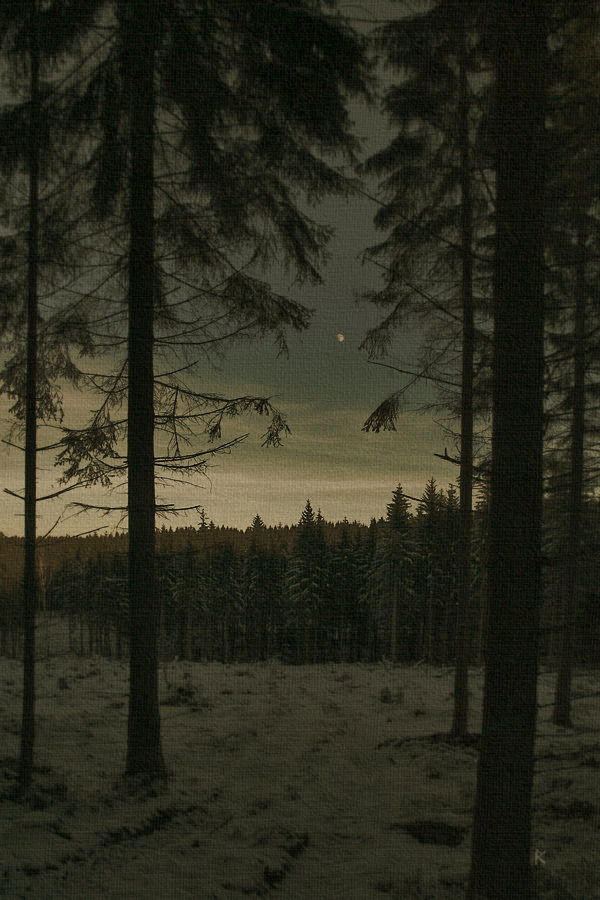31 December 2017
30 December 2017
29 December 2017
Earn.
I've had smarter people around me all my life, but I haven't run into one yet that can outwork me. And if they can't outwork you, then smarts aren't going to do them much good. That's just the way it is. And if you believe that and live by it, you'd be surprised at how much fun you can have. Any time you give a man something he doesn't earn, you cheapen him.
Woody Hayes
Notice.
Adventures come to the adventurous, and mysterious things fall in the way of those who, with wonder and imagination, are on the watch for them; but the majority of people go past the doors that are half ajar, thinking them closed, and fail to notice the faint stirrings of the great curtain that hangs ever in the form of appearances between them and the world of causes behind.
Algernon Blackwood
Dvořák, Slavonic Dances, Op.46
Zoltán Kocsis boogies in front of the St. Petersburg Philharmonic Orchestra ...
Proverbs.
In seed time learn, in harvest teach, in winter enjoy.
Drive your cart and your plough over the bones of the dead.
The road of excess leads to the palace of wisdom.
Prudence is a rich ugly old maid courted by Incapacity.
He who desires but acts not, breeds pestilence.
The cut worm forgives the plough.
Dip him in the river who loves water.
A fool sees not the same tree that a wise man sees.
He whose face gives no light shall never become a star.
Eternity is in love with the productions of time.
The busy bee has no time for sorrow.
The hours of folly are measured by the clock, but of wisdom no clock can measure.
All wholesome food is caught without a net or a trap.
Bring out number, weight and measure in a year of dearth.
No bird soars too high if he soars with his own wings.
A dead body revenges not injuries.
The most sublime act is to set another before you.
If the fool would persist in his folly he would become wise.
Folly is the cloak of knavery. Shame is Pride’s cloak.
Prisons are built with stones of Law, Brothels with bricks of Religion.
The pride of the peacock is the glory of God.
The lust of the goat is the bounty of God.
The wrath of the lion is the wisdom of God.
The nakedness of woman is the work of God.
Excess of sorrow laughs. Excess of joy weeps.
The roaring of lions, the howling of wolves, the raging of the stormy sea, and the destructive sword, are portions of eternity too great for the eye of man.
The fox condemns the trap, not himself.
Joys impregnate. Sorrows bring forth.
Let man wear the fell of the lion, woman the fleece of the sheep.
The bird a nest, the spider a web, man friendship.
The selfish smiling fool, and the sullen frowning fool, shall be both thought wise, that they may be a rod.
What is now proved was once only imagined.
The rat, the mouse, the fox, the rabbit, watch the roots; the lion, the tiger, the horse, the elephant, watch the fruits.
The cistern contains; the fountain overflows.
One thought fills immensity.
Always be ready to speak your mind, and a base man will avoid you.
Everything possible to be believed is an image of truth.
The eagle never lost so much time as when he submitted to learn of the crow.
The fox provides for himself, but God provides for the lion.
Think in the morning. Act in the noon. Eat in the evening. Sleep in the night.
He who has suffered you to impose on him knows you.
As the plough follows words, so God rewards prayers.
The tigers of wrath are wiser than the horses of instruction.
Expect poison from the standing water.
You never know what is enough unless you know what is more than enough.
Listen to the fool’s reproach! It is a kingly title!
The eyes of fire, the nostrils of air, the mouth of water, the beard of earth.
The weak in courage is strong in cunning.
The apple tree never asks the beech how he shall grow, nor the lion, the horse, how he shall take his prey.
The thankful receiver bears a plentiful harvest.
If others had not been foolish, we should be so.
The soul of sweet delight can never be defiled.
When thou seest an Eagle, thou seest a portion of Genius: lift up thy head!
As the caterpillar chooses the fairest leaves to lay her eggs on, so the priest lays his curse on the fairest joys.
To create a little flower is the labour of ages.
Damn braces: Bless relaxes.
The best wine is the oldest, the best water the newest.
Prayers plough not! Praises reap not! Joys laugh not! Sorrows weep not!
The head Sublime, the heart Pathos, the genitals Beauty, the hands and feet Proportion.
As the air to a bird or the sea to a fish, so is contempt to the contemptible.
The crow wished everything was black, the owl that everything was white.
Exuberance is Beauty.
If the lion was advised by the fox, he would be cunning.
Improvement makes straight roads, but the crooked roads without Improvement are roads of Genius.
Sooner murder an infant in its cradle than nurse unacted desires.
Where man is not, nature is barren.
Truth can never be told so as to be understood, and not be believed.
Enough! or Too much.
The ancient Poets animated all sensible objects with Gods or Geniuses, calling them by the names and adorning them with the properties of woods, rivers, mountains, lakes, cities, nations, and whatever their enlarged and numerous senses could perceive.
And particularly they studied the genius of each city and country, placing it under its mental deity.
Till a system was formed, which some took advantage of and enslaved the vulgar by attempting to realize or abstract the mental deities from their objects: thus began Priesthood.
Choosing forms of worship from poetic tales.
And at length they pronounced that the Gods had ordered such things.
Thus men forgot that All deities reside in the human breast.
William Blake
Simple.
With a day that varies from 3 hours in the winter to 21 hours in the summer and permanently frozen ground due to the extreme subarctic climate, the roughly 500 residents of Oymyakon are mostly unable to grow crops, therefore their diet basically consists of reindeer and horse meat. While spoiled kids to the south get out of school for snow days, the children of Oymyakon are stuck in class unless the temperature falls below –52C. If you were to go outside naked on an average day, it would take approximately one minute for you to freeze to death.
Besides the obvious issues of remoteness, the cold itself forces this village to be a simple place with few conveniences. Cars are hard to start with frozen axle grease and fuel tanks, unused pipes can freeze within 5 hours, batteries lose life at an alarming speed. Pen ink freezes, anything less than fur fails at keeping the chill off, and electronics are all but useless.
Besides the obvious issues of remoteness, the cold itself forces this village to be a simple place with few conveniences. Cars are hard to start with frozen axle grease and fuel tanks, unused pipes can freeze within 5 hours, batteries lose life at an alarming speed. Pen ink freezes, anything less than fur fails at keeping the chill off, and electronics are all but useless.
Thanks, Jess! When do we leave?
Irving.
Disney's "The History of Washington Irving," from 1955 ...
Higher.
The task of understanding is not to replicate in conceptual form something that already exists, but rather to create a wholly new realm, that together with the world given to our senses constitutes the fullness of reality. If we do not believe within ourselves this deeply rooted feeling that there is something higher than ourselves, we shall never find the strength to evolve into something higher. The higher worlds are around us. These worlds are not only heavenly worlds, not only worlds of happiness, though paradise and happiness are in them, but they are also worlds that could be terrible for the people, by dangerous facts and creatures. If man wants to obtain knowledge of the greatness and happiness of these worlds, then is nothing else possible than that he also will be introduced to the dangerous, with the fearfulness that they contain. One is not possible without the other.
Rudolf Steiner
28 December 2017
Breath.
How often do we perceive the land and the sky as a kind of temporal nest? How often do we think of light as already ancient? The past seems mostly personal, familial, tribal. The present can seem to contain only the in-box of our electronic mail, the ceaseless beeping of machines, images of thin children standing on dust. The future? As uncertain as ever.
Geologists can identify whole eons in a stony glance. Biologists speak of vestigial organs. Astronomers amble through billions of years every night. Their knowledge surprises and soothes me, but this is not conventional faith, which insists that certain things can never be wrong. It's a fidelity to facts, provisional though they are, given our human limitations, and it is also an openness to wonder. I find the grandeur and meaning in science that my father mostly finds in religion, although, like many people, he sees each as founts and not necessarily contradictory ones. In any case, neither one of us seems especially fond of death. We take comfort where we can.
Beneath the maple tree, I perused an old science book for children, Heinz Haber's Our Friend the Atom, and I learned that in each breath of air there swarm 25 X 1021 atoms. That is: 25,000,000,000,000,000,000,000 atoms. I learned that the atoms that Leonardo da Vinci breathed are still in the atmosphere today -- of course -- and, considering "storms, updrafts, hurricanes, trade winds" and the master's re-uptake of atoms in "closed rooms," the book claims that "with every breath ... you inhale 100 million atoms that were once breathed by ... da Vinci!"
Rocks and stars remind us of and touch us with time, and breath is a kind of immortality.
CONNECT
Thank You, Jess.
Geologists can identify whole eons in a stony glance. Biologists speak of vestigial organs. Astronomers amble through billions of years every night. Their knowledge surprises and soothes me, but this is not conventional faith, which insists that certain things can never be wrong. It's a fidelity to facts, provisional though they are, given our human limitations, and it is also an openness to wonder. I find the grandeur and meaning in science that my father mostly finds in religion, although, like many people, he sees each as founts and not necessarily contradictory ones. In any case, neither one of us seems especially fond of death. We take comfort where we can.
Beneath the maple tree, I perused an old science book for children, Heinz Haber's Our Friend the Atom, and I learned that in each breath of air there swarm 25 X 1021 atoms. That is: 25,000,000,000,000,000,000,000 atoms. I learned that the atoms that Leonardo da Vinci breathed are still in the atmosphere today -- of course -- and, considering "storms, updrafts, hurricanes, trade winds" and the master's re-uptake of atoms in "closed rooms," the book claims that "with every breath ... you inhale 100 million atoms that were once breathed by ... da Vinci!"
Rocks and stars remind us of and touch us with time, and breath is a kind of immortality.
CONNECT
Thank You, Jess.
Equally.
"I am the poet of the body and I am the poet of the soul. I go with the slaves of the earth equally with the masters. And I will stand between the master and the slaves, entering into both so that both will understand me alike."
Walt Whitman
He is today one of the most-recognized figures in American literary history: poet, patriot and faithful advocate of democracy. His name graces shopping malls, highway rest stops, and local high schools. He has adherents around the globe. But in his own time, critics denounced Walt Whitman as a "lunatic raving in pitiable delirium." They pronounced his signature book of poetry, Leaves of Grass, "slimy," "vile," and "beastly." One reviewer wished to see him whipped in public; another suggested he commit suicide. He was famously "banned in Boston."
Even by his own measure, Walt Whitman failed in so many ways in his own lifetime: failed in his attempt to reach a vast audience of ordinary men and women; failed to achieve the laurels he craved; and most painfully, failed to talk the nation out of an impending civil war.
This American Experience tells Whitman's life story, from his working class childhood in Long Island, to his years as a newspaper reporter in Brooklyn when he struggled to support his impoverished family, then to his reckless pursuit of the attention and affection he craved for his work, to his death in 1892.
Mozart, The Abduction from the Seraglio
Karl Böhm conducts the Bavarian State Opera in the Overture ...
Hear.
Now I will do nothing but listen,
To accrue what I hear into this song, to let sounds contribute toward it.
I hear bravuras of birds, bustle of growing wheat, gossip of flames, clack of sticks cooking my meals,
I hear the sound I love, the sound of the human voice,
I hear all sounds running together, combined, fused or following,
Sounds of the city and sounds out of the city, sounds of the day and night,
Talkative young ones to those that like them, the loud laugh of work-people at their meals,
The angry base of disjointed friendship, the faint tones of the sick,
The judge with hands tight to the desk, his pallid lips pronouncing a death-sentence,
The heave'e'yo of stevedores unlading ships by the wharves, the refrain of the anchor-lifters,
The ring of alarm-bells, the cry of fire, the whirr of swift-streak-
ing engines and hose-carts with premonitory tinkles and color'd lights,
The steam-whistle, the solid roll of the train of approaching cars,
The slow march play'd at the head of the association marching two and two,
(They go to guard some corpse, the flag-tops are draped with black muslin.)
I hear the violoncello, ('tis the young man's heart's complaint,)
I hear the key'd cornet, it glides quickly in through my ears,
It shakes mad-sweet pangs through my belly and breast.
I hear the chorus, it is a grand opera,
Ah this indeed is music—this suits me.
A tenor large and fresh as the creation fills me,
The orbic flex of his mouth is pouring and filling me full.
I hear the train'd soprano (what work with hers is this?)
The orchestra whirls me wider than Uranus flies,
It wrenches such ardors from me I did not know I possess'd them,
It sails me, I dab with bare feet, they are lick'd by the indolent waves,
I am cut by bitter and angry hail, I lose my breath,
Steep'd amid honey'd morphine, my windpipe throttled in fakes of death,
At length let up again to feel the puzzle of puzzles,
And that we call Being.
Walt Whitman
Imprinted.
Cultural Offering recognizes The Gulag Archipelago, which was published on this day in 1973.
What about the main thing in life, all its riddles? If you want, I'll spell it out for you right now. Do not pursue what is illusionary -property and position: all that is gained at the expense of your nerves decade after decade, and is confiscated in one fell night. Live with a steady superiority over life -don't be afraid of misfortune, and do not yearn for happiness; it is, after all, all the same: the bitter doesn't last forever, and the sweet never fills the cup to overflowing. It is enough if you don't freeze in the cold and if thirst and hunger don't claw at your insides. If your back isn't broken, if your feet can walk, if both arms can bend, if both eyes can see, if both ears hear, then whom should you envy? And why? Our envy of others devours us most of all. Rub your eyes and purify your heart -and prize above all else in the world those who love you and who wish you well. Do not hurt them or scold them, and never part from any of them in anger; after all, you simply do not know: it may be your last act before your arrest, and that will be how you are imprinted on their memory.
Aleksandr Solzhenitsyn
Instinct.
The man flung a look back along the way he had come. The Yukon lay a mile wide and hidden under three feet of ice. On top of this ice were as many feet of snow. It was all pure white, rolling in gentle undulations where the ice-jams of the freeze-up had formed. North and south, as far as his eye could see, it was unbroken white, save for a dark hair-line that curved and twisted from around the spruce-covered island to the south, and that curved and twisted away into the north, where it disappeared behind another spruce-covered island. This dark hair-line was the trail -- the main trail -- that led south five hundred miles to the Chilcoot Pass, Dyea, and salt water; and that led north seventy miles to Dawson, and still on to the north a thousand miles to Nulato, and finally to St. Michael on Bering Sea, a thousand miles and half a thousand more.
But all this -- the mysterious, far-reaching hair-line trail, the absence of sun from the sky, the tremendous cold, and the strangeness and weirdness of it all -- made no impression on the man. It was not because he was long used to it. He was a newcomer in the land, a chechaquo, and this was his first winter. The trouble with him was that he was without imagination. He was quick and alert in the things of life, but only in the things, and not in the significances. Fifty degrees below zero meant eighty-odd degrees of frost. Such fact impressed him as being cold and uncomfortable, and that was all. It did not lead him to meditate upon his frailty as a creature of temperature, and upon man's frailty in general, able only to live within certain narrow limits of heat and cold; and from there on it did not lead him to the conjectural field of immortality and man's place in the universe. Fifty degrees below zero stood for a bite of frost that hurt and that must be guarded against by the use of mittens, ear-flaps, warm moccasins, and thick socks. Fifty degrees below zero was to him just precisely fifty degrees below zero. That there should be anything more to it than that was a thought that never entered his head.
As he turned to go on, he spat speculatively. There was a sharp, explosive crackle that startled him. He spat again. And again, in the air, before it could fall to the snow, the spittle crackled. He knew that at fifty below spittle crackled on the snow, but this spittle had crackled in the air. Undoubtedly it was colder than fifty below -- how much colder he did not know. But the temperature did not matter. He was bound for the old claim on the left fork of Henderson Creek, where the boys were already. They had come over across the divide from the Indian Creek country, while he had come the roundabout way to take a look at the possibilities of getting out logs in the spring from the islands in the Yukon. He would be in to camp by six o'clock; a bit after dark, it was true, but the boys would be there, a fire would be going, and a hot supper would be ready. As for lunch, he pressed his hand against the protruding bundle under his jacket. It was also under his shirt, wrapped up in a handkerchief and lying against the naked skin. It was the only way to keep the biscuits from freezing. He smiled agreeably to himself as he thought of those biscuits, each cut open and sopped in bacon grease, and each enclosing a generous slice of fried bacon.
He plunged in among the big spruce trees. The trail was faint. A foot of snow had fallen since the last sled had passed over, and he was glad he was without a sled, travelling light. In fact, he carried nothing but the lunch wrapped in the handkerchief. He was surprised, however, at the cold. It certainly was cold, he concluded, as he rubbed his numb nose and cheek-bones with his mittened hand. He was a warm-whiskered man, but the hair on his face did not protect the high cheek-bones and the eager nose that thrust itself aggressively into the frosty air.
At the man's heels trotted a dog, a big native husky, the proper wolf-dog, gray-coated and without any visible or temperamental difference from its brother, the wild wolf. The animal was depressed by the tremendous cold. It knew that it was no time for travelling. Its instinct told it a truer tale than was told to the man by the man's judgment. In reality, it was not merely colder than fifty below zero; it was colder than sixty below, than seventy below. It was seventy-five below zero. Since the freezing-point is thirty-two above zero, it meant that one hundred and seven degrees of frost obtained. The dog did not know anything about thermometers. Possibly in its brain there was no sharp consciousness of a condition of very cold such as was in the man's brain. But the brute had its instinct. It experienced a vague but menacing apprehension that subdued it and made it slink along at the man's heels, and that made it question eagerly every unwonted movement of the man as if expecting him to go into camp or to seek shelter somewhere and build a fire. The dog had learned fire, and it wanted fire, or else to burrow under the snow and cuddle its warmth away from the air.
The frozen moisture of its breathing had settled on its fur in a fine powder of frost, and especially were its jowls, muzzle, and eyelashes whitened by its crystalled breath. The man's red beard and mustache were likewise frosted, but more solidly, the deposit taking the form of ice and increasing with every warm, moist breath he exhaled. Also, the man was chewing tobacco, and the muzzle of ice held his lips so rigidly that he was unable to clear his chin when he expelled the juice. The result was that a crystal beard of the color and solidity of amber was increasing its length on his chin. If he fell down it would shatter itself, like glass, into brittle fragments. But he did not mind the appendage. It was the penalty all tobacco-chewers paid in that country, and he had been out before in two cold snaps. They had not been so cold as this, he knew, but by the spirit thermometer at Sixty Mile he knew they had been registered at fifty below and at fifty-five.
Jack London, from "To Build a Fire"
CONNECT
Delve.
Were you thinking that those were the words, Those upright lines? those curves, angles, dots? No, those are not the words, The substantial words are in the ground and sea, They are in the air, they are in you…
The workmanship of souls is by those inaudible words of the earth, The masters know the earth’s words and use them more than audible words… To her children the words of the eloquent dumb Great mother never fail…
Say on, sayers! Sing on, singers! Delve! mould! Pile the words of the earth! Work on, age after age, nothing is to be lost, It may have to wait long, but it will certainly come in use, When the materials are prepared and ready, The architects shall appear.
Walt Whitman
27 December 2017
Astounde.
Friedrich, Ruins at Dusk, 1831
Stay, curyous traveller, and pass not bye,
Until this fetive pile astounde thine eye.
Whole rocks on rocks with yron joynd surveie,
And okes with okes entremed disponed lie.
This mightie pile, that keeps the wyndes at baie,
Fyre-levyn and the mokie storme defie,
That shootes aloofe into the reaulmes of daie,
Shall be the record of the Buylders fame for aie.
Thou seest this maystrie of a human hand,
The pride of Brystowe and the Westerne lande,
Yet is the Buylders vertues much moe greete,
Greeter than can bie Rowlies pen be scande.
Thou seest the saynctes and kynges in stonen state,
That seemd with breath and human soule dispande,
As payrde to us enseem these men of slate,
Such is greete Canynge's mynde when payrd to God elate.
Well maiest thou be astound, but view it well;
Go not from hence before thou see thy fill,
And learn the Builder's vertues and his name;
Of this tall spyre in every countye telle,
And with thy tale the lazing rych men shame;
Showe howe the glorious Canynge did excelle;
How hee good man a friend for kynges became,
And gloryous paved at once the way to heaven and fame.
Thomas Chatterton
Arts.
SLY DICK
Sharp was the frost, the wind was high
And sparkling stars bedeckt the sky
Sly Dick in arts of cunning skill'd,
Whose rapine all his pockets fill'd,
Had laid him down to take his rest
And soothe with sleep his anxious breast.
'Twas thus a dark infernal sprite
A native of the blackest night,
Portending mischief to devise
Upon Sly Dick he cast his eyes;
Then straight descends the infernal sprite,
And in his chamber does alight;
In visions he before him stands,
And his attention he commands.
Thus spake the sprite— hearken my friend,
And to my counsels now attend.
Within the garret's spacious dome
There lies a well stor'd wealthy room,
Well stor'd with cloth and stockings too,
Which I suppose will do for you,
First from the cloth take thou a purse,
For thee it will not be the worse,
A noble purse rewards thy pains,
A purse to hold thy filching gains;
Then for the stockings let them reeve
And not a scrap behind thee leave,
Five bundles for a penny sell
And pence to thee will come pell mell;
See it be done with speed and care
Thus spake the sprite and sunk in air.
When in the morn with thoughts erect
Sly Dick did on his dreams reflect,
Why faith, thinks he, 'tis something too,
It might— perhaps— it might be true,
I'll go and see— away he hies,
And to the garret quick he flies,
Enters the room, cuts up the clothes
And after that reeves up the hose;
Then of the cloth he purses made,
Purses to hold his filching trade.
Thomas Chatterton
Subscribe to:
Posts (Atom)
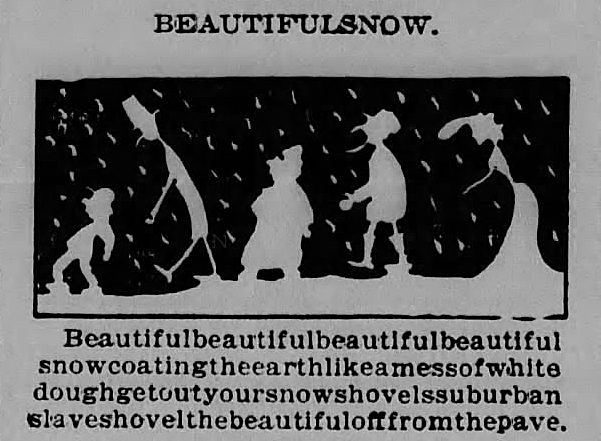



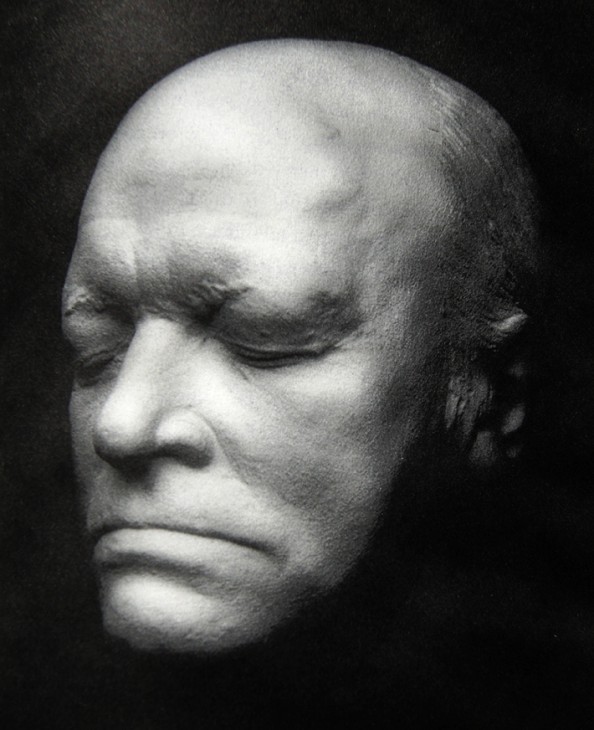



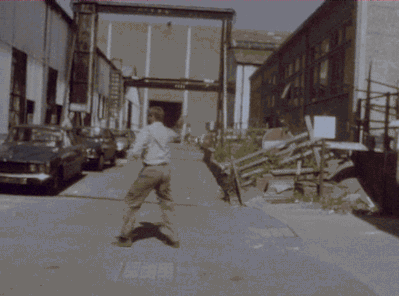

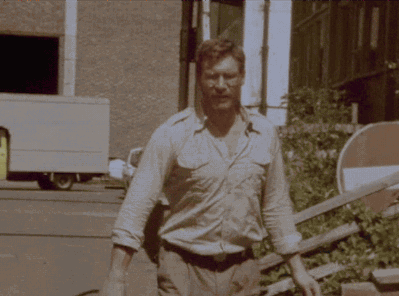

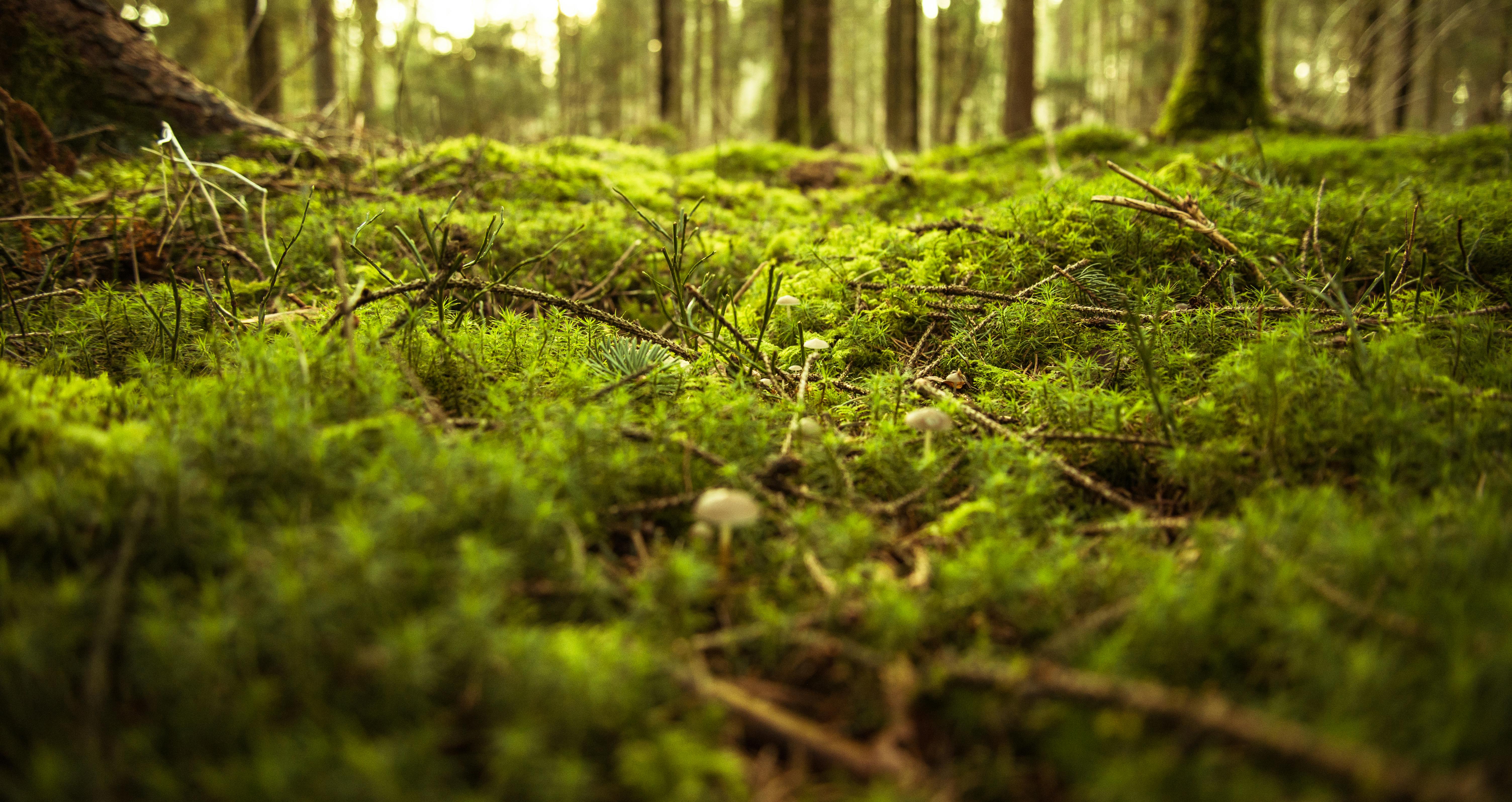


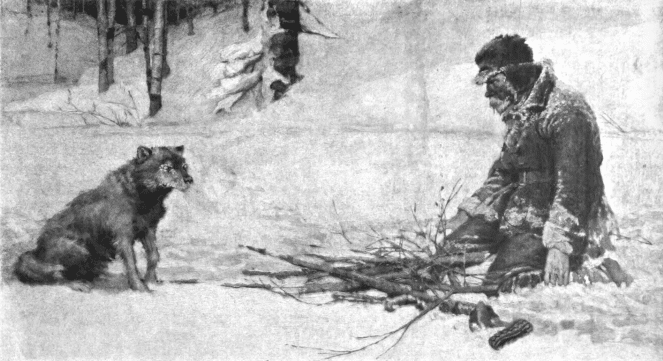

.jpg)
